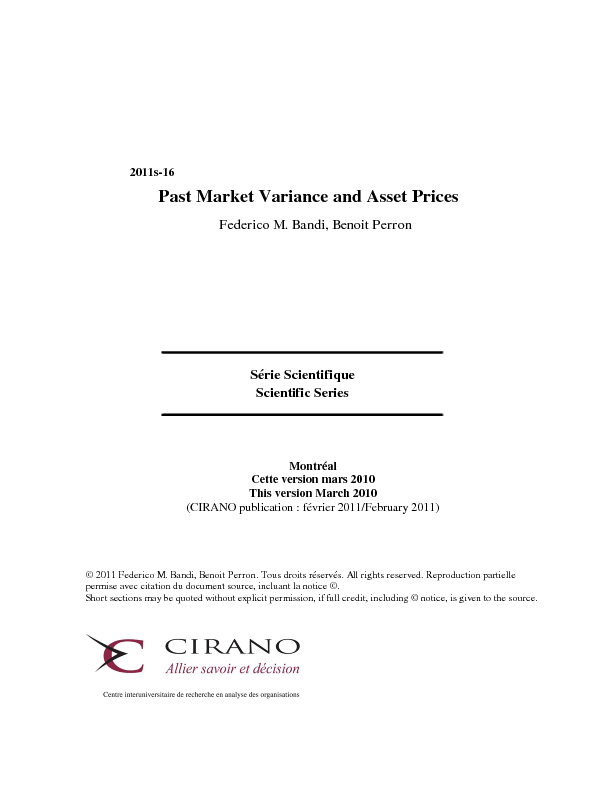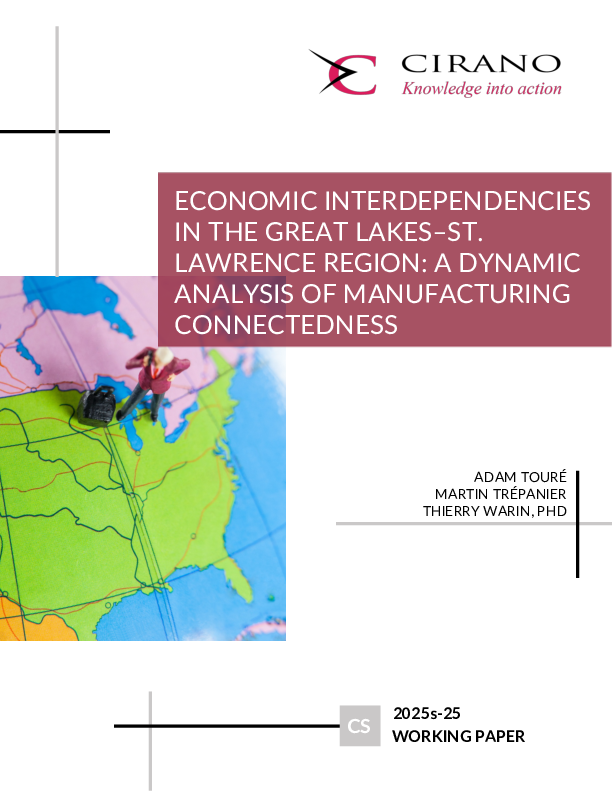Past Market Variance and Asset Prices
Recent work in asset pricing has focused on market-wide variance as a systematic factor and on firm-specific variance as idiosyncratic risk. We study an alternative channel through which the variability of financial market returns may help our understanding of cross-sectional price formation in financial markets. Invoking the countercyclical nature of market variance, we allow the (stochastic) discounting of future cash-flows to depend on the level of past market variance (pmv). Employing pmv as a conditioning variable in a classical consumption-CAPM framework, we derive economically meaningful conditional factor loadings and conditional risk premia. We show that scaling by pmv may also yield more effective pricing results than scaling by successful, alternative variables (such as the consumption-to-wealth ratio) precisely at frequencies at which their predictive ability for excess market returns should be (in theory) and is (empirically) maximal, i.e., business-cycle frequencies.
[ - ]




